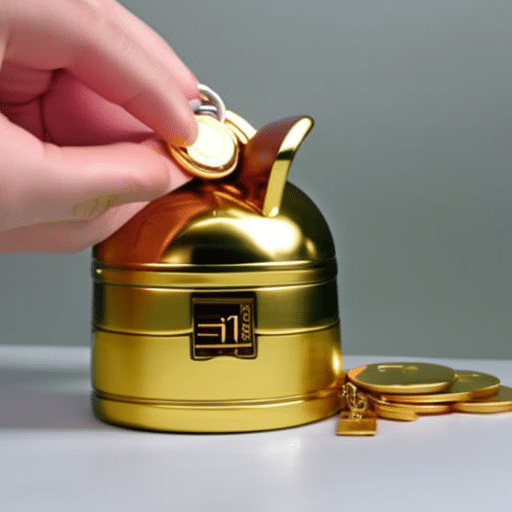Protecting your PI coins is essential if you want to ensure that your digital currency is secure. PI coins are a valuable digital asset, and it’s important to take the necessary steps to keep them safe.
In this article, we’ll discuss the best practices for securing PI coins. We’ll look at how to:
- Choose a reputable wallet
- Secure your wallet with a unique password
- Enable two-factor authentication
- Back up your wallet
- Store your PI coins in a secure location
With these steps, you’ll be able to keep your PI coins safe and secure.
Choosing a Reputable Wallet
When it comes to Pi Coin, choosing a reputable wallet is key – so make sure you pick one you can trust! Look for a wallet that has a solid security record, as well as a good reputation in the cryptocurrency community.
Make sure the wallet is updated regularly and offers two-factor authentication and other security measures. It’s also important to choose a wallet that is compatible with your device. If you’re using a mobile device, make sure the wallet is compatible with your operating system.
In addition, look for a wallet that offers backup and recovery options. This way, if your device is lost or stolen, you can still access your funds. Look for a wallet provider that offers customer service and a secure platform for your transactions.
Make sure you read the terms and conditions to understand how your data is stored and used. By choosing a reputable wallet provider, you can rest assured that your Pi Coin is safe and secure.
Securing Your Wallet with a Unique Password
Protecting your wallet with a strong, unique password is essential – don’t take chances! To maximize the security of your Pi Coin wallet, make sure to create a secure password that is difficult to guess.
Use a variety of characters, including upper and lower case letters, numbers, and special characters. It’s also a good idea to avoid using personal information like your name, address, or date of birth in your password.
Avoid using the same password for multiple accounts, as hackers can use this to gain access to more than one account.
If you need to remember your passwords, use a reputable password manager. This will help keep your passwords secure and organized.
Enabling Two-Factor Authentication
Enable two-factor authentication for added peace of mind – it’s a cinch! Two-factor authentication adds an extra layer of security to your wallet. It requires users to enter a one-time passcode when accessing their account. This passcode is generated by a third-party authentication app, such as Google Authenticator, and is unique to each user.
By adding this extra layer of security, hackers are unable to access your account even if they’ve managed to acquire your password. Setting up two-factor authentication is easy. All you need to do is sign into your wallet, go to the security settings page, and follow the instructions.
Once enabled, you’ll be required to enter a passcode each time you access your wallet. This provides you with the assurance that your Pi coins are safe and secure.
Backing Up Your Wallet
Backing up your wallet is an absolute must; missing out on this precaution could be disastrous! Regularly backing up your Pi Coin wallet is an essential step in protecting your Pi Coins and other digital assets.
It’s easy to do, and it will enable you to quickly recover your funds in the event of a computer failure, theft, or other disaster.
To back up your wallet, simply store a copy of it in a secure location such as an external hard drive, cloud storage, or USB drive. You should also keep a paper copy of your wallet private key in a safe, secure location.
By taking these simple steps, you can ensure that your Pi Coins will remain safe and secure.
Storing Your PI Coins in a Secure Location
Keeping your PI Coins safe and sound should be top priority – store them in a secure location to ensure their security.
To ensure your PI Coins are fully secure, it’s important to store them in a location that offers maximum protection. This could be digital storage such as a hardware wallet, cloud wallet, or a paper wallet. The advantage of using digital wallets is that they provide extra layers of security such as two-factor authentication, encryption, and even biometric authentication. The downside is that they’re vulnerable to hacking, malware, and other cyber threats.
Paper wallets provide a secure way to store your PI Coins without the risk of cyber threats. When creating a paper wallet, you can store the private key offline and away from potential threats. This ensures that the PI Coins are safe and secure, as long as you take the necessary steps to keep the paper wallet safe. This could include storing it in a secure location, such as a safe or a bank vault, or using an encryption tool to protect the information.
Conclusion
Now that you know the best practices for securing PI coins, you’re ready to start investing!
Choose a reputable wallet, secure it with a unique password, and enable two-factor authentication.
Back up your wallet regularly and store your coins in a secure location.
Taking the time to do all these things will help keep your PI coins safe and give you peace of mind.
Investing in PI coins is a great way to diversify your portfolio and potentially make a profit.
With the right knowledge and preparation, you can be confident that your coins are secure and ready to grow.
